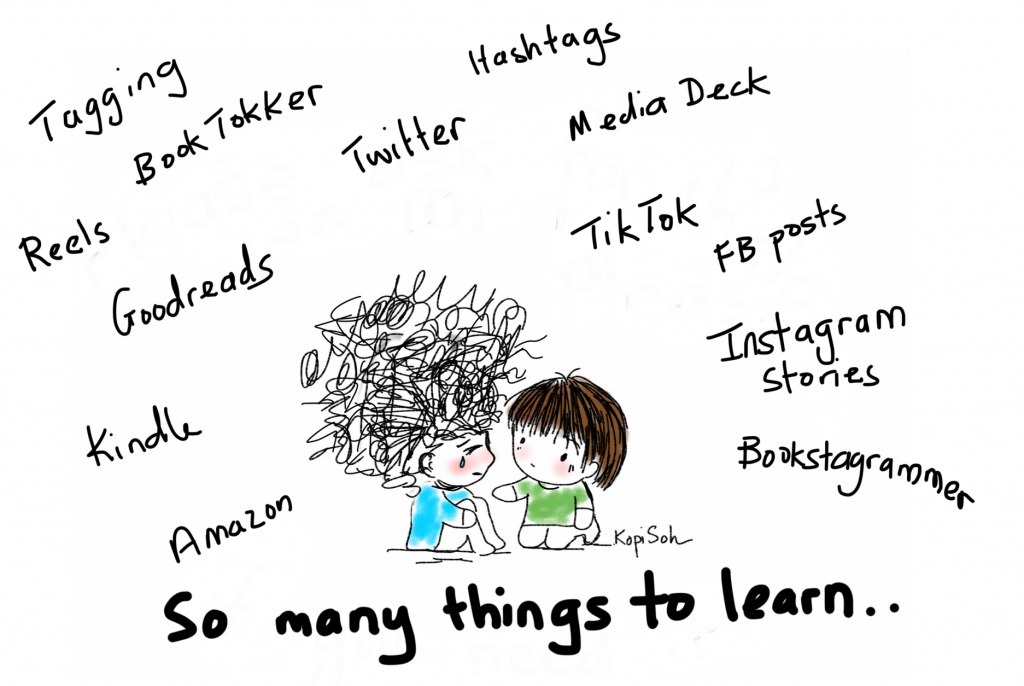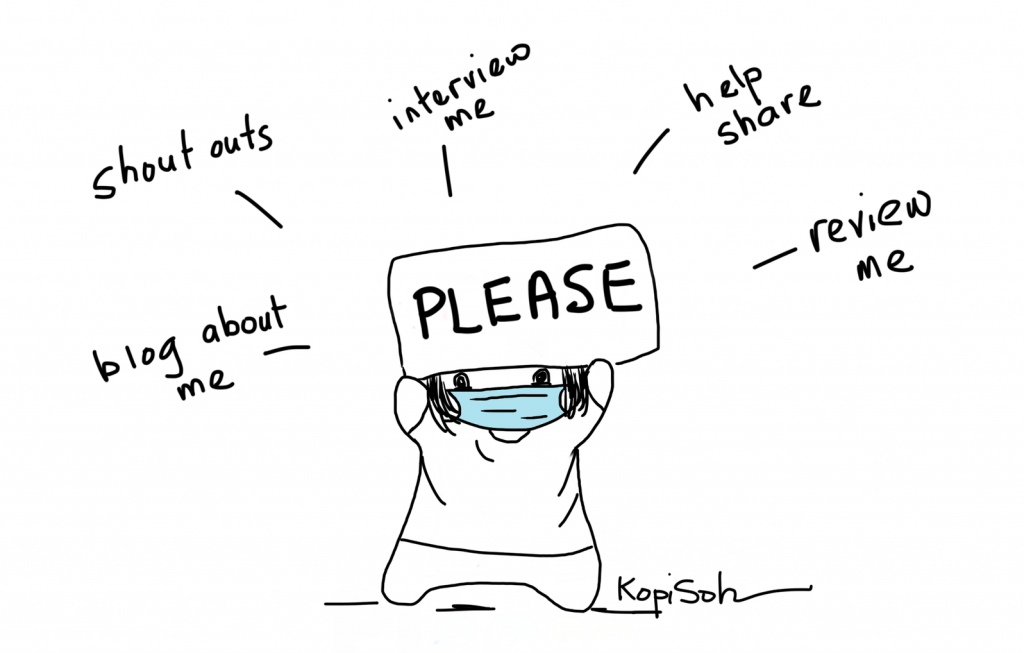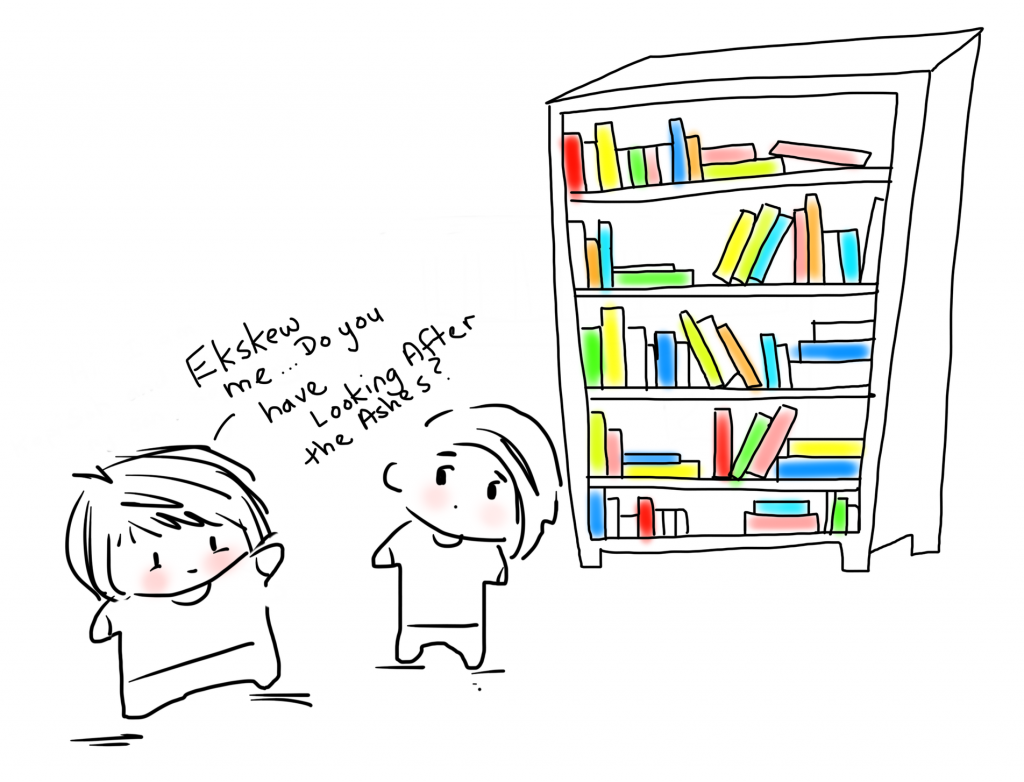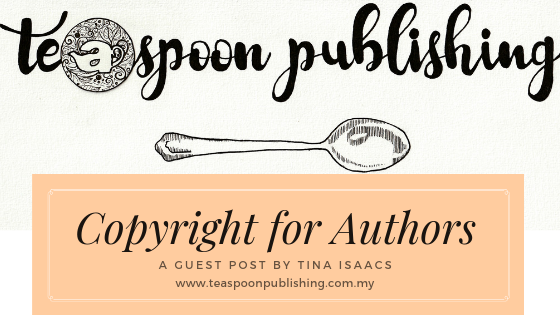If you’re a writer or author in Malaysia, you need a website. That’s it. Post over. You can leave now.
Oh, you’re still here? Why? Because you want me to explain why? Well then, *gets on high horse* don’t mind if I do.
Look, this post wouldn’t have existed had my Malaysian-writer-friends owned their own websites. In fact, based on my totally credible anecdotal data, only two out of 10 Malaysian writers actually maintain a digital presence of some sort.
These people include copywriters all the way to award-winning journalists. And that’s why this post was born. How are we going to sapot lokal if there’s no Like button to click, am I right?
So without further ado, let’s jump right into this topic.
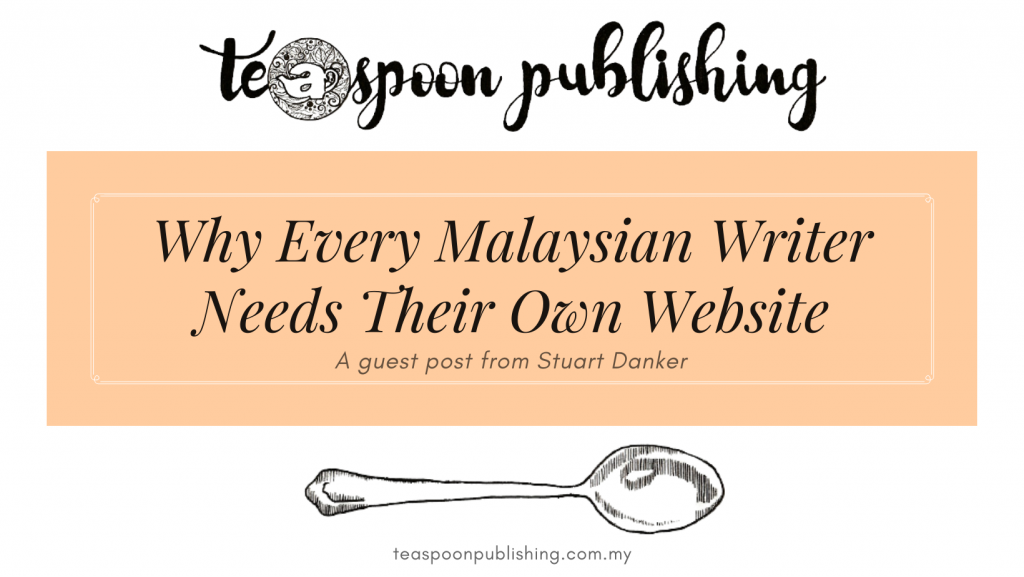
Why do writers need their own website?
Picture this: a potential employer—or even better, a fan—wants to know more about you. They google your name. Maybe they come across your LinkedIn profile, or the rogue article you wrote for a magazine once. But they don’t get a central source of information about you. Now all your potential stalkers get are the grainy photos you took when Friendster was still around.
Compare that to them seeing your personal website as the first search result, replete with your bio, portfolio, and the occasional blog post.
Which do you think feels more welcoming?
I get it. To some of you, it really doesn’t matter as long as you get to write. I hate to burst your bubble but like Kopi Soh mentioned in her post, writing isn’t the only thing involved in the writer’s journey. Who would’ve thought?
Tell you what. I’ll even make it easy for you. Here’s the CliffsNotes version on why you should own a personal website as a writer (especially in this day and age):
- You get to look professional online
- Your fans will have something to follow, share, and like
- Your potential employers and publishers will be able to see that you’ve taken some initiative in the craft
- You’ll be able to announce your future books or seminars
- You can further build an audience by putting out quality work
- You’ll get to collect your audience’s email addresses
- You’ll be able to build SEO (which can’t be done without a website)
And that’s just the tip of the iceberg.
Okay, so where do I host my site?
There are tons of platforms for you to choose from. If you’re new to web admin, then I suggest heading over to the likes of Wix or Weebly, where everything’s just drag and drop, but for the purpose of this post, I’m going to highlight my favourite brand, which is WordPress.
Now, if you don’t already own a website and I’ve managed to sell you into starting one, then I highly suggest that you try WordPress, specifically WordPress.com. Do note that there are minor—but very important—distinctions between WordPress.com and WordPress.org.
I don’t want to get all technical and put you off, so here’s the CliffsNotes again:
- WordPress.org
- Customise however you want
- More digital-marketing friendly out of the box
- Your website is independent, and you won’t need to adhere to any T&Cs
- WordPress.com
- Easier to get started (free accounts available)
- Limited control unless you pay for Business account
- You are bound by the platform, so they get to dictate what you can or can’t do
- But you get the WordPress Reader (main benefit of .com)
At first glance, the terms may not seem all that important, especially if you’re new to web building, but you’ll quickly learn that both platforms have very distinct pros and cons that may make or break your online presence.
So what are the differences?
If you want the TL;DR, then just remember this: WordPress.org allows for more independence, while WordPress.com is more restrictive but fuss-free.
One of the benefits of having your independence is that you’ll be able to insert any plug-ins you want on your website. So if you want to accept donations, or set up Facebook Pixel, or sell your books, all you’ll need to do is install the appropriate plug-ins or code. You can’t do that on WordPress.com (unless again, you pay for the Business account).
But that doesn’t mean WordPress.com doesn’t have its benefits. By losing a bit of your autonomy, you get access to the WordPress Reader, which is like the Instagram feed of blogging. And with over 409 million people on that platform, imagine the potential traffic you’ll get for each blog post, for free!
So you see, it’s not a cut-and-dried choice between the two. You just need to know your own style of building your internet presence. Do you enjoy advertising on social media and want to keep track of your traffic using Google Analytics? Then WordPress.org is for you.
On the other hand, if you’d like a ready community that would see your posts on their feed, then the .com variant would fit you well. Also, you get to try the platform for free before committing too.
There’s no good or bad here. They’re both different.
And if you’d like a more concrete comparison, Teaspoon Publishing uses WordPress.org, while my website uses WordPress.com.
Also, as a quick aside, WordPress.org costs slightly more on average (MYR16 per month for first billing, MYR60 per month after), while WordPress.com is cheaper initially (MYR16 per month forever, or MYR0 with the Free account). However, WordPress.com’s full functionality is only accessible through the Business Account (MYR100 per month).
And owning your own domain name (like www.yourname.com) will set you back around MYR80 per year.
What do I do after owning a website?
Okay, you now have a website to your name. People googling you will have an official page to land on. What’s next?
I’ll tell you. We’ll page Mister Cliff so we can look at his notes:
- List your details
This is the bare minimum. You’ll need to list email addresses, social media accounts, your experience, and portfolio. Basically, make it easy for people to learn about you and contact you. - Run the blog
You’ll also need to create content, not just to look good in Google’s eyes (SEO), but also to show your audience that you’re an active personality online. The ghost house syndrome is real. Don’t let your site look like a ghost house. - Learn about lead magnets
Okay, so you have a bare-bones site with your details and content. Now you should start thinking of something you can offer in exchange for emails. Is it a discount on your books? A PDF guide? A free consultation? Believe it or not, newsletters are still totally relevant in 2022. - While you’re at it, learn SEO too
You won’t be able to run SEO efforts without a website. It won’t work if all you have is a Facebook page or an Instagram profile. What SEO is, is the ability to appear on Google when someone searches a relevant term. You want an example? Try searching the terms ‘isbn malaysia’ or ‘smashwords’. You should see Teaspoon Publishing on the first page of Google. - Network!
Just because you build it doesn’t mean people will come. If you’ve opted for WordPress.com, hop onto the Reader and start commenting on others’ blogs. If you’re on WordPress.org, network with the friendly bunch of people in the Malaysian Writers Community group on Facebook. Networking alone (advertising not included) can actually grow your digital presence pretty tremendously. I personally grew my audience on my website purely by networking.
Ripe time for Malaysian writers
At the end of the day, what we want is to be discoverable, especially in the Malaysian market. I’m telling you, even famous Malaysian authors haven’t started building their web presence yet, so it’s as good a time as any to start.
And that’s it. The end of the post. For real this time. You can leave now. Seriously. Bye.
Stuart Danker has bumbled along in the writing industry for almost a decade now. His debut novel Tinhead City, KL was released in 2021, and he’s currently pursuing his passion in fiction (and he’s using the term ‘pursue’ loosely).


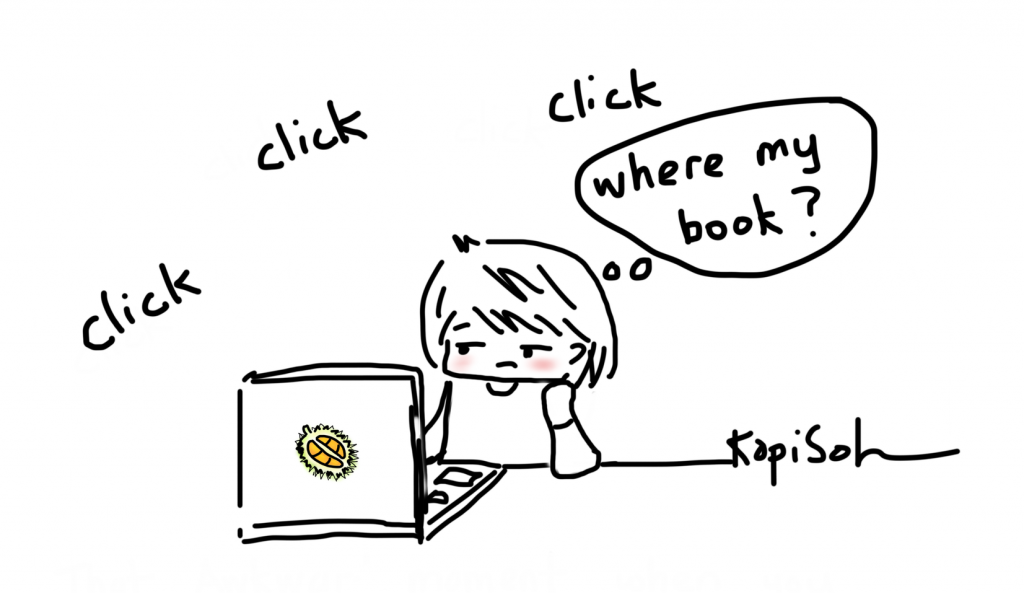 Then comes the media and social media part: if you don’t promote your own book it may not get the publicity it needs and it may eventually just die out. If you are someone who is not very tech-savvy and not active on social media, it’s time you buck up and learn. Yes, learn
Then comes the media and social media part: if you don’t promote your own book it may not get the publicity it needs and it may eventually just die out. If you are someone who is not very tech-savvy and not active on social media, it’s time you buck up and learn. Yes, learn 